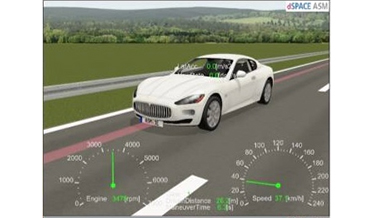OPINA is an Open Innovation Autonomous Vehicle (AV) design and development platform together with important cluster services to support SMEs, start-ups, R&D companies/institutions, academicians, and researchers. PROVEN works with vision of productization, an engineering company providing software development, testing, and independent verification/validation services, and developing its own products with R&D focused studies.
The partnership between OPINA and PROVEN exemplifies the power of collaboration in advancing the autonomous mobility industry. By combining OPINA’s open innovation platform with PROVEN’s software development and testing expertise, the two organizations aim to push the boundaries of anomaly detection technology.
Accelerating Anomaly Detection Collabration OPINA and PROVEN
PROVEN collaboration with OPINA is centered around anomaly detection, a critical component of ensuring the safety and reliability for autonomous vehicles.
Within their collaborative efforts, OPINA and PROVEN are embarking on an ambitious effort to enhance autonomous vehicle systems. OPINA’s role is instrumental in developing a comprehensive vehicle dynamics model, complete with a sophisticated braking subsystem, utilizing Hardware in the loop (HIL) testing system. This model will serve as the cornerstone for evaluating vehicle behavior across diverse scenarios. Working in tandem, PROVEN and OPINA are meticulously crafting precise driving scenarios on flat, straight roads, basing their designs on established velocity profiles from industry standards like WLTP. To push the envelope even further, they’re exploring advanced terrain simulations, adding elevation profiles to create a more comprehensive testing environment.
OPINA works closely with PROVEN to ensure establishing communication between HIL system and PROVEN hardware component (ECU) by developing CAN messages for transmission on the CAN bus. ECU (Electronic Control Unit) Verification & Validation is a key activity of this collaboration with PROVEN. Plant model, CAN messages, recreating the real-world conditions are main functional components developed for rigorous testing. Their collaboration will encompass the simulation of nominal scenarios to closely monitor and analyze vehicle dynamics and the transmission of critical CAN messages. Furthermore, a pivotal aspect of their work involves engineering a faulty braking system with reduced brake pressure, enabling them to simulate multiple scenarios while meticulously monitoring CAN message transmission.
Stay tuned for updates as OPINA and PROVEN work together to redefine the landscape of intelligent mobility software development and anomaly detection.













